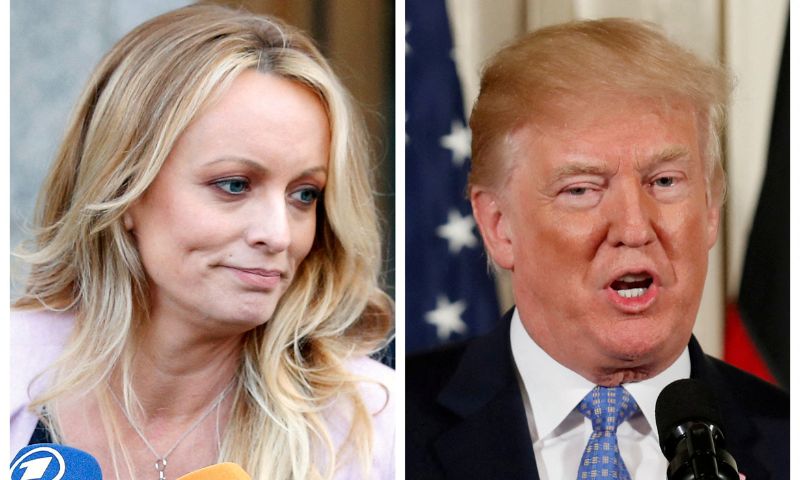NEW YORK: Former US President Donald Trump appeared in a New York courtroom on Monday as his legal team pleaded a dismissal or postponement of his criminal trial related to hush money payments made to adult film actress Stormy Daniels.
Justice Juan Merchan presided over the hearing, which started with the reading of a motion by Trump’s lawyers accusing prosecutors of withholding potential evidence concerning former Trump attorney Michael Cohen, who facilitated the payments.
“This is a witch hunt. This is a hoax,” Trump stated briefly to reporters outside the courtroom before proceeding inside.
During the hearing, Trump engaged with his lawyer Susan Necheles and maintained a composed demeanor as proceedings began. His defense team argued for a delay, citing the belated disclosure of thousands of pages of evidence related to Cohen.
Hush Money Case Against Trump
Cohen, who previously testified that Trump directed him to make the payment to Daniels, has become a central figure in the case. Trump’s defense contends that the late disclosure of documents hampers their ability to challenge Cohen’s credibility.
Initially scheduled to start on Monday, the trial faced a 30-day delay at the prosecutors’ behest to allow Trump to review the newly disclosed documents. Seeking further postponement or dismissal of charges due to the delayed disclosure, Trump’s legal team now awaits Merchan’s decision.
The outcome of the hearing holds significant implications, potentially marking the first-ever criminal trial of a former US president. Trump, who has maintained his innocence, labeled the case a politically motivated “witch hunt.”
Amid his legal battles, Trump faces mounting legal challenges and deadlines, including a civil fraud judgment and three other criminal cases. Leveraging these legal proceedings, he has sought to raise funds from supporters as he gears up for the 2024 presidential campaign.
The hush money case revolves around payments made to Daniels, part of a broader scheme prosecutors allege aimed to silence individuals with damaging information about Trump during his 2016 presidential campaign. Trump’s defense contends the payments were intended to prevent embarrassment to himself and his family, rather than to influence the election.























